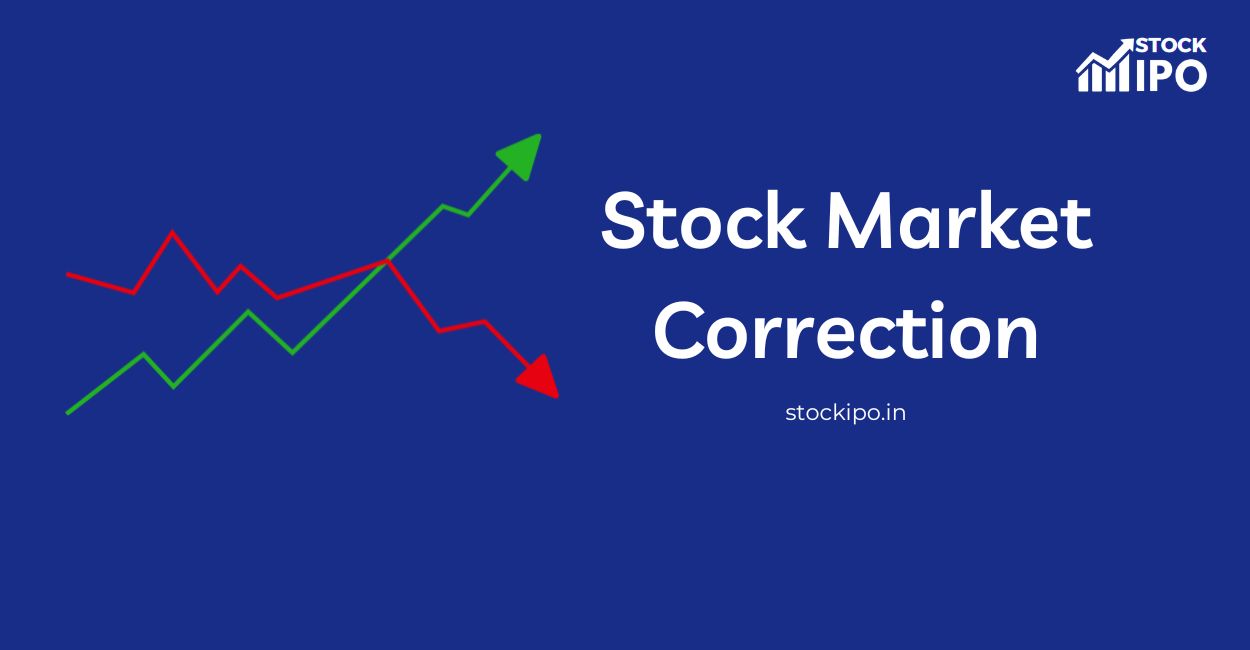A stock market correction is a normal part of the market cycle. In fact, they play an important role in preventing long periods of artificially inflated share prices, allowing the market to become more efficient. While short-term traders should be cautious during periods of weighted volatility, patient long-term investors should be less concerned.
Regardless, the best course of action for any trader or investor is to avoid making rash decisions when the market enters correction territory.
In this article, we are going to discuss all stuff about the term “market correction” and how Investors should view it.
What Exactly is Stock Market market correction?
A market correction is defined as a 10%-20% drop in a stock market index. A bear market, which is defined as a loss of 20% or more in a stock market index, can come before it. A correction is defined as a 10% to 20% loss in a stock market index or individual assets.
Though a prolonged market correction is painted in a negative light for a variety of reasons such as securities losses, economic negativity, and significant bearish movements, a healthy correction is quite beneficial to ending the excessive buying price equilibrium and thus required for a thriving market.
Factors Contributing Market Correction
Various circumstances, including those that can lead to a crash or bear market, can cause a stock market correction. Throughout history, each market slump has been largely unique, but certain initial triggers have been similar.
- Overvaluation: When stock prices grow too quickly or do not correspond to the underlying fundamentals of the companies, a correction can bring them back in line with their true value. For example, during the late 1990s dot-com boom, many tech stocks had dramatically inflated valuations, leading to a market correction in the early 2000s.
- Macroeconomic Conditions: The certain macroeconomic conditions such as high inflation rates, rising of bond yield etc. affects the market situation and which generally leads to market correction.
- Political Events: Stock market corrections can occur as a result of elections, changes in government policies, or geopolitical concerns as investors reassess their expectations.
- Unexpected Events: Unexpected events, such as the COVID pandemic in 2020, which affects the entire world and global economy, can cause market meltdowns.
How long does Market Correction last?
Not only can we not forecast how frequently market corrections will occur, but we also cannot foresee how long they will persist.
Having said that, according to the data in the table above, the average length of market corrections (including those that developed into bear markets) between 1990 and 2021 was 163.5 days (between 5 and 6 months), but this fluctuated greatly. The quickest correction lasted 13 days, while the longest lasted 929 days (about 2.5 years).
Investors’ View on Market Correction
While stock market corrections might be upsetting, they are a very typical occurrence. In reality, the stock market experiences a little correction every three to four years on average. It’s a natural aspect of the market cycle that permits valuations to cool when they become too “hot.”
Because of this, stock prices are frequently substantially below the fair intrinsic worth of the underlying business. Long-term investors can generate long-term wealth by purchasing shares in top-tier companies at discounted prices.
It’s important to remember that the stock market has an unblemished track record of recovering from even the most severe stock market corrections and crashes in history. And this eventual rising momentum is nearly usually fuelled by continuously improving market confidence as thriving businesses announce good profits performance.
Therefore Buying shares at discounted rates during a stock market downturn can significantly speed the wealth-building process over the long term for investors with funds to spare.
How Investor should Prepare?
- Save huge amounts of Capital: One of the most common mistakes investors make during a stock market meltdown is selling shares after their value has plummeted. Those that need money to fund living expenses, on the other hand, may have no choice but to sell at a low price. This danger can be reduced by keeping enough cash on hand in a savings account.
- Diversification: Stock market crashes can have differing degrees of severity in different businesses. By establishing a diverse portfolio, the danger of owning shares in the most strongly hit industry is lowered. Allocating wealth among a diverse range of alternative asset classes, such as bonds and real estate, can also help to offset the impact of quickly decreasing stock prices.
- Investing in SIPs: Systematic investment plans (SIPs) enable investors to invest a certain amount on a regular basis, regardless of market conditions. This method helps to average out investment costs over time, lowering the impact of market corrections.
History of Stock Market Correction in India
- The Harshad Mehta Scam: Following the discovery of the Harshad Mehta scam, the stock market underwent a significant correction. Between April and June 1992, the BSE Sensex dropped by about 40%. It is one of India’s largest stock market corrections.
- Demonetization: The Indian government’s unexpected demonetization of high-value currency notes in 2016 caused a short-term correction. Within a month of the news, the BSE Sensex fell by about 6%.
- Covid-19 Pandemic: Covid-19 exploded in January 2020, shocking the entire planet. The Sensex fell 13% on March 23rd after the shutdown news and continued to fall for several days. In one week, the Sensex fell from 42,273 to 28,288.
- The Global Financial Crisis: During the global financial crisis, the Indian stock market saw a severe correction. Between January 2008 and March 2009, the BSE Sensex fell by more than 60%.
Conclusion
Stock market corrections are an unavoidable aspect of the investing process. Investors can better manage these difficult periods by understanding the nature of corrections and implementing effective tactics. Embracing market volatility and remaining aware on the variables that drive corrections can help investors make sound decisions and accomplish their long-term financial objectives. Remember that patience and discipline are important for success in the stock market.







